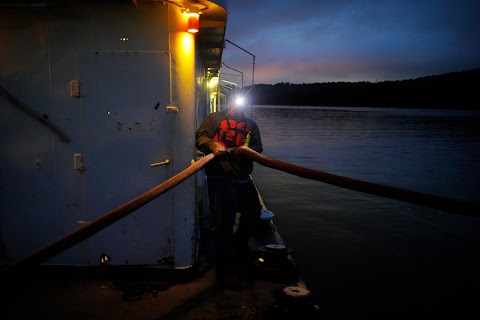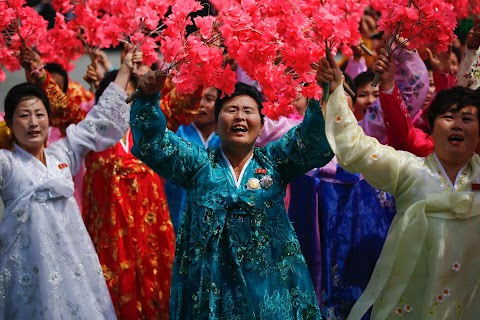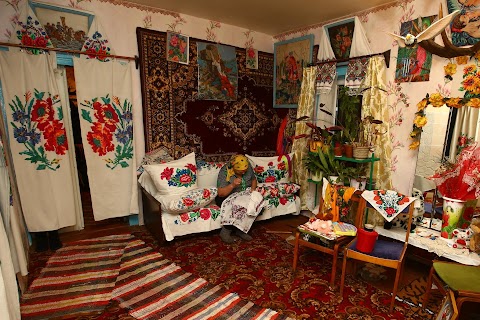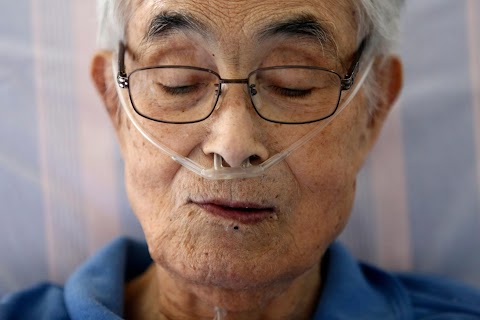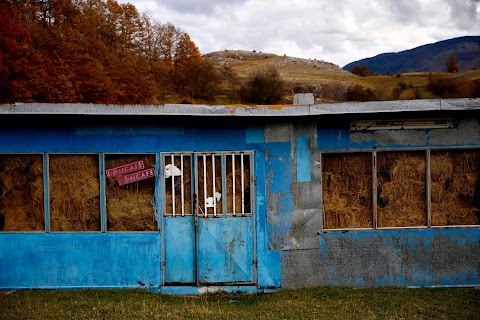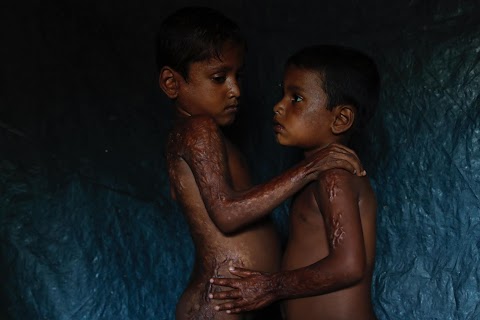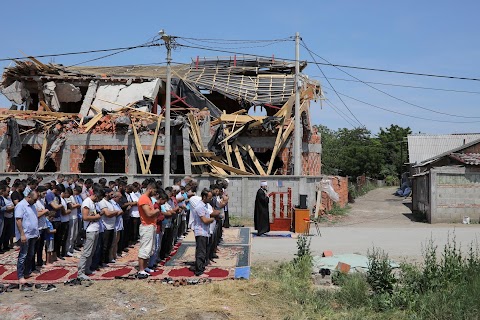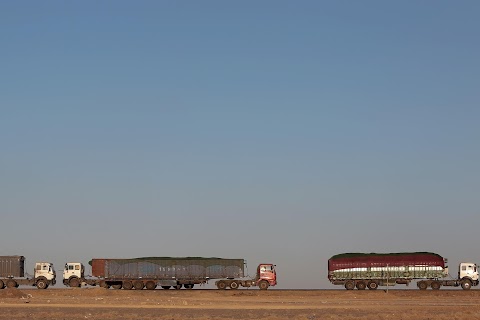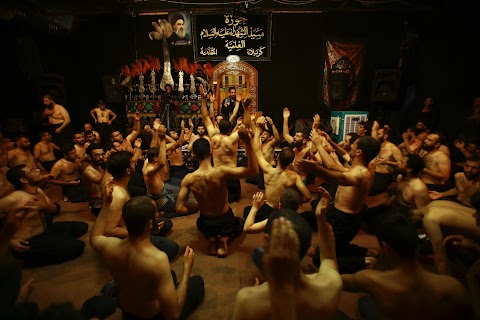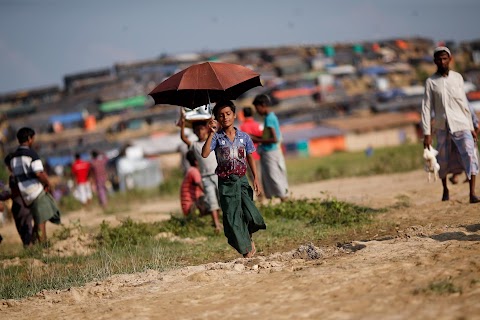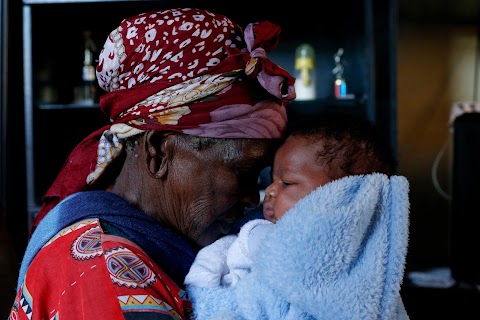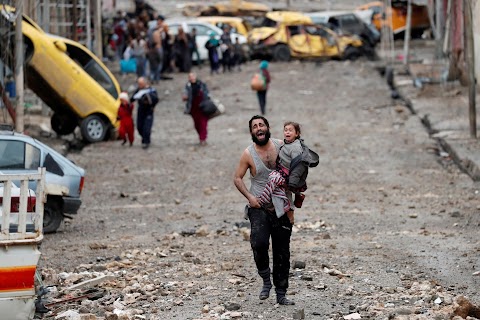
The battle against Islamic State
It was an awkward coalition riven by political and sectarian differences, facing an elusive, fanatical enemy dug into an urban maze of narrow streets and alleyways. So, could Iraq's government really deliver on its vow to vanquish Islamic State?
In the end, the army, Shi'ite Muslim paramilitaries and Kurdish Peshmerga fighters mustered rare unity to end Islamic State's reign of terror in Iraq's second city Mosul, seat of the ultra-hardline Sunni insurgents' "caliphate".

Baghdad's victory in July 2017 after nine months of fighting was the coup de grace for the caliphate and came three years after a jihadist juggernaut seized one third of Iraq.
But even with supportive U.S. air strikes, Baghdad's triumph came at a devastating cost for the once-vibrant, multicultural city in northern Iraq and the surrounding region.
When Islamic State militants first arrived in Mosul in June 2014 after sweeping aside crumbling Iraqi army units, many Mosul residents initially welcomed them.
The militants were Sunni Muslims, like many in Mosul who had accused the forces of then-Shi'ite Prime Minister Nuri al-Maliki of widespread sectarian abuses.
Islamic State consequently presented itself as Mosul's saviour. But as jihadists brandishing AK-47 assault rifles began imposing an Islamist doctrine even more brutal and mediaeval than al Qaeda, its popularity soon faded.
Maliki's successor, Haider al-Abadi, had long been seen as an ineffective leader who could not make tough decisions.
However, a U.S.-backed campaign against IS in Mosul offered Abadi a chance to emerge as a steely statesman capable of taking on a group that had terrorised a sprawling city with beheadings in public squares while staging deadly attacks in the West.

Just smoking one cigarette, an act IS saw as anti-Islamic, earned you dozens of lashes. Children were used as informers. Women in minority communities were turned into sex slaves.
But taking back Mosul was never going to be easy.
Long before the first shot was fired, Abadi and his advisers and military commanders had to tread cautiously, taking into account sectarian and ethnic sensitivities that could splinter the united front he urgently needed to establish.
Iraqi and Kurdish intelligence agencies had recruited informers inside Mosul, from ex-soldiers and army officers to taxi drivers, who would face instant execution if caught.
Even if an alliance of convenience was struck, glossing over sectarian splits, Mosul itself posed formidable physical obstacles.
Key districts consisted of ancient little streets and alleyways inaccessible to tanks and armoured vehicles, and they were so densely populated that U.S.-led coalition air strikes risked heavy civilian casualties.
So, street by street, house by house, fighting was unavoidable.
Such challenges first popped up in Mosul's hinterland as Kurdish forces slowly advanced against fierce IS resistance.
In one village, a single IS sniper hunkered down in a house held up hundreds of Kurdish fighters, the U.S. special forces advising them and 40 of their vehicles. Eventually, his rifle went silent after three air strikes on the house.

As pro-government forces inched forward, the United Nations warned of a possible humanitarian disaster and expressed fear that jihadists could seize civilians for use as human shields, and gun down anyone trying to escape.
IS fighters – both Iraqis and foreigners - were experts at carrying out suicide bombings and assembling homemade bombs. Many houses were booby-trapped. Iraqi military commanders had to factor these lurking perils into their gameplan.
In interviews, IS insurgents shed light on what Iraqi forces were up against. They were quite open about their ideology and what they were willing to do to transform the Middle East.
One man said he had used rape as a weapon of war against more than 200 women from Iraqi minorities, and had killed 500 people.

After months of gruelling fighting, Iraqi forces finally attained the outskirts of Mosul, but any celebrations were premature. Bombs littered dusty roads. Car bombs were exploding.
A Mosul resident explained that his child no longer flinched as explosions shook his street because many people, including the young, had grown numb to the daily bloodshed.
Each side resorted to desperate measures to gain an edge.
In north Mosul, people walked by fly-infested, bloated corpses of militants who had been left on roadsides for two weeks. Iraqi soldiers explained that the stinking bodies had been left there to send a clear message to residents - don't join IS or you will suffer the same fate.

Caught in the middle were civilians who had suffered under the IS reign of terror for three years and were now wondering if they would survive a relentless battle to "liberate" them.
Parents waited patiently after weeks of fighting for a largely unknowable right moment to make a dash for Iraqi government lines, clutching their children, risking a run-in with jihadists from places as far away as Chechnya.
As much of east and west Mosul was pulverised by coalition air strikes or IS truck and car bombs, the city was reduced to row after row of collapsed or gutted housing.
In the end, IS suffered its most decisive defeat and watched their self-proclaimed caliphate evaporate in Iraq, then in Syria as Kurdish-led forces retook Raqqa, IS's urban stronghold there.

But those victories will be followed by tough questions about the future of both Iraq and Syria.
Preserving the shaky understanding forged between the different communities in the run-up to the Mosul campaign will be essential to saving Iraq as a state in the future.
It did not take long for the Mosul coalition to fray.
In October, Iraqi forces dislodged Kurdish Peshmerga fighters from the oil city of Kirkuk and other disputed areas and Baghdad imposed curbed air travel to and from the semi-autonomous Kurdistan region in retaliation for a Kurdish independence referendum held in northern Iraq in September.
The battle for Raqqa, which became IS's operational base in Syria, had a different feel to it as U.S.-backed Kurds and Arabs in the Syrian Democratic Forces (SDF) tightened their siege.

The fighting seemed slower and more measured, step by step along abandoned streets where journalists were given access.
In the weeks before Raqqa's fall in October, young female SDF fighters faced off against hardened militants and suffered losses. But that did not curb their enthusiasm and some said they would eventually like to join Kurdish PKK militants in Turkey and help advance their 33-year-old insurgency there.
The victors in Iraq and Syria now face new challenges as they rebuild cities shattered by the showdown with IS.

After IS's defeat in Raqqa, Raqqa residents formed a council to run the city but they had no budget when it was first set up, just residents streaming into their tin, run-down headquarters demanding everything from instant jobs to getting their damaged farmland back.
Syrian Kurdish fighters were inspired by the ideas of Abdullah Ocalan, head of the PKK militants who has been imprisoned in Turkey for almost 20 years.
Turkey views the political rise of Syria's Kurds as a threat to its national security and is fiercely opposed to the idea of Kurdish autonomy on its doorstep.
The Kurdish groups who led the fight against Islamic State in its former capital Raqqa must now navigate a complex peace to avoid ethnic tension with the city's Arab majority and to secure critical U.S. aid.
So, life for Raqqa's victors will remain fraught with risk.
Slideshow

Muhammad Hamed: "In this picture, we were on a tour with the head of the Rapid Response Unit General Al Assadi when the soldiers decided to walk into a damaged mosque. The area we were in was only recently liberated. I was in the same mosque the day before and the Federal Police had shot down an Islamic State drone carrying explosive just outside. At first I was hesitant to go deep into the mosque, as I worried that some explosives may be left behind. But when I saw the lights coming in through the broken windows and after getting okay from my security advisor I decided to go in for the picture."

Iraqi Special Operations Forces arrest a person suspected of belonging to Islamic State militants in western Mosul. Alaa Al-Marjani: "I spotted four suspected Islamic State militants picked out of a group of displaced people by Iraqi soldiers. The suspects had been identified by civilians working with the security forces and wearing masks to protect themselves from possible reprisal by IS. The suspects including the man in this picture were then tossed into the bed of a pickup truck. My picture was significant for our story because it helped illustrate how some militants had secreted themselves among fleeing civilians in hopes of evading capture. Some of them trimmed their bushy beards and changed their clothes in efforts to blend in. I had been covering developments on another front when I saw on social media that a large group of refugees was heading to this location. Not much was happening where I was so I changed cars and headed to the refugee gathering point. The way the suspects were being treated was abnormal so I felt it was very important to document this in pictures. After I took this picture, a military intelligence officer tried to seize my camera and send me away. I was working together with a Reuters correspondent and security adviser, so the officer eventually desisted and allowed me to take further photos."

Zohra Bensemra: "As the battle between Iraqi forces and Islamic State fighters to liberate the west of Mosul became increasingly ferocious, the flows of civilians fleeing their city intensified day after day. Refugee camps were filling up quickly. The child was crying because he was exhausted and hungry. He sat with other displaced civilians in one of three buses that were transporting them to a camp. But the Federal Police brigade in charge of sheltering them were struggling to find places in the camps. They had made checks but all of them were full. I took this picture at sunset. I fear the displaced families were still far from the end of their ordeal."

Zohra Bensemra: "I took this picture in a desert on the outskirts of Western Mosul of 90-year-old Khatla Ali Abdallah after she fled the battle for Mosul. Her fearful eyes red with fatigue, Khatla was so exhausted she could not stand or even sit properly. She looked to me like she had not eaten or drank water for a long time. The moment was so emotional that I had tears in my eyes when I photographed Khatla. I felt bad because I could not do anything for her apart from taking pictures to show the world the agony and torment of people trying to flee Mosul to safety. I was sad too, imagining this woman as my own grandmother and feeling helpless to make her comfortable. But despite all, Khatla looked beautiful to me, almost as if every wrinkle on her face told a story. I was fortunate to find her a few days later in a refugee camp after showing people my photograph of her. She has survived decades of turbulence in northern Iraq. She told me "the fighting there is the worst I have ever seen". She had been carried across the desert by her grandsons, under sniper and mortar fire, one of thousands who braved the difficult and dangerous journey out of Islamic State's shrinking stronghold in western Mosul. Khatla made me smile when she expressed her remorse about her 20 chickens she had to leave behind. She had looked after them even while hiding from crossfire in her house's basement. Despite all the terror she experienced under IS rule, it had not destroyed her humanity - she said, 'Even animals deserve life.'"

Zohra Bensemra: "The Reuters team was waiting at an Iraqi special forces checkpoint on the outskirts of western Mosul for permission to go to their command base to cover the frontline. It was a field clinic run by foreign volunteers. It seemed calm. It was still early. We were talking to one of the foreign medics when suddenly a special forces Humvee came at speed towards the checkpoint. It was four injured civilians - two women, a man and a boy. They seemed in shock. The woman could not answer my questions. She seemed lost in thought. I smiled to comfort her and help her understand she was safe. A soldier told us they were hit by mortar fire as they fled fighting between Iraqi forces and Islamic State fighters.

Youssef Boudlal: "Early that morning I was following some displaced Iraqi people from different areas in Mosul fleeing their homes during clashes between Iraqi forces and Islamic State militants in the city of Mosul. I saw a few people transporting their belongings on trolleys. I thought it was just food and a few clothes, but the closer they got the more the smell was unbearable and I discovered that they were carrying the bodies of civilians who were killed a few days ago in air strikes."

Goran Tomasevic: "The soldier is aiming at the dead body of ISIS suicide bomber. He killed him maybe 20-30 seconds before I stared shooting pictures. We were in a house on the frontline since early morning. An ISIS fighter earlier killed an Iraqi Special Forces soldier and injured another one. The picture was shot in the evening and soon after with the first dark we managed to withdraw from that spot."

Thaier Al-Sudani: "This attack came in the middle of a battle when Iraqi forces were trying to recapture the regional government compound from Islamic State. I was taking pictures of clashes at Mosul's antiquities museum when we spotted an Islamic State drone in the air above us. We dropped to the ground for fear of being attacked by a rocket. I cut my hand and we returned to the car to treat it. When we got there, I saw Iraqi forces firing rockets nearby at an IS target beyond our field of vision, so I resumed taking photographs. I thought this photo was a strong one that expressed the terrible violence of battle. It is another world covering wars compared with news conferences. There is 100 percent danger, and the internet we need to transmit pictures is poor or non-existent."

Marko Djurica: "In April 2017 I was on an assignment in Iraq, covering the battle between Iraqi forces and Islamic State fighters. Every day the Reuters team would go to the frontline from Erbil to west Mosul where the fights were going on. Each day on the road we would pass the small town of Qaraqosh. Once home for about 50,000 mostly Iraqi Christians, now it was completely empty, a ghost town. Iraqi forces kicked out Islamic State fighters but citizens were still afraid to go back to their homes. The town once had 12 churches with one more than 1000 years old. Now all were destroyed or badly ruined. Burnt-out altar of a church was one of the images I took that made me very sad."

Marko Djurica: "On April 10, a Reuters team entered eastern Mosul to work on a story about the the city's destroyed university, once a centre for education in northern Iraq. On arrival, I was struck first by the huge size of the campus, then by the scale of destruction. At least 10 large buildings and some smaller ones had been more or less reduced to rubble. The entrance was guarded by Iraqi soldiers, cleaning their guns and drinking tea. I saw people trying to carry furniture and equipment out from what was once the chemistry department in a burnt-out building. It turned out these men were professors who had taught there and had now volunteered to save whatever could be salvaged. As I walked around taking pictures I met more teachers trying to clean up or just gloomily contemplating the devastation. It was emotional for them as they knew there was no chance the university would be the same again anytime soon."

Bodies of alleged Islamic state militants. Danish Siddiqui: "Our team was coming back from frontlines in western Mosul when we decided to search for dead bodies that our text reporter had heard about. After asking a few locals we took a small road near a highway and after a few kilometres I spotted bodies lying by the roadside. I saw that the men were blindfolded and were shot from at close range. There were several spent bullet casings lying near the bodies. This picture was taken a few meters away from the rest of the bodies. We could only spend few minutes there as we didn’t want to attract the attention of passing military vehicles."

Suhaib Salem: "In the early morning on my way to Mosul I found long line of cars. I went out of the car to check and found that the bridge over the Tigris river had been temporarily closed in front of all displaced people who fled their houses during the fighting in Mosul. Suddenly I saw Lila and her daughters standing by the river waiting. They were very sad. I came very close to Lila and started talking with her. She told me that her husband was killed, two of her daughters were still missing and that she was going back to Mosul to look for them. I took some pictures of the family while they were urging an Iraqi soldier to let them enter a boat. I followed them on a military boat, crossing the river to the western side of Mosul. I don't know what happened to her after."

Erik De Castro: "We arrived at the frontline with the 9th Iraqi army division and went up on a rooftop to take pictures of the Grand al-Nuri mosque and its landmark minaret, still in the hands of Islamic State in western Mosul. That's when we spotted civilians fleeing the tightening noose around the Islamic State militants by scrambling through a hole in a wall of a school across the road. The day was blazing hot, with temperatures reaching 40 Celsius with no breeze. The people emerging from western Mosul into the relative safety of government-held territory were suffering from heat exhaustion. With mortar shells exploding all around, an Iraqi soldier passed one small boy of probably no more than seven through the hole, unconscious, his head lolling back, his gaunt-looking body unnaturally hot. Tim, our security adviser, received him and, fearing the boy was suffering from dangerous heat stroke, carried him across the broken ground to find shade. The boy came round and started crying, and soldiers came to pour water on his head, chest and feet to cool him down. He gulped at the sips they gave him to drink and they found him a blue-coloured rug to lie on. An infant in a similar condition was then handed through the hole in the wall and placed beside the boy on the rug. Soon afterwards, the mother of the boy made it through the hole."

Internally displaced Syrian children who fled Raqqa city stand near their tent in Ras al-Ain province. Rodi Said: "Whenever I photograph children who were displaced by war, I always think of my only daughter, placing myself in a situation where any father watches his children suffer from hunger, the cold and homelessness. I always strive to convey the situation to the world through a photograph and that's the most I can offer as a photojournalist."

Internally displaced people who fled Raqqa city ride a car in a camp near Ain Issa, Raqqa Governorate. Rodi Said: "What caught my attention that this family's home was reduced to a small car that contained what its owners were able to carry while fleeing."

An internally displaced boy who fled Raqqa city herds sheep in a camp near Ain Issa, Raqqa Governorate. Rodi Said: "I wanted to show the importance of the sheep to the people of that region. It is shown by the child's insistence on saving the sheep despite the dangerous situation."

Goran Tomasevic: "I can't remember who destroyed the bridge. The bridge is located in a village between Ain Issa and Raqqa. Local Villagers made a makeshift crossing as the canal was dividing the village."

Goran Tomasevic: "I took that picture in a field hospital in Raqqa. I photographed a group of injured Kurdish fighters. They were attacked by ISIS fighters. I saw a few dead bodies and about 10 soldiers wounded. Some of the fighters had bullet injuries and some of them were injured with shrapnel."

Goran Tomasevic: "They were members of Kurdish YPG militia. They were running across the street because ISIS fighters' positions were nearby. I shot the picture in a last day of my assignment. I was lucky to have that picture as YPG fighters were giving very restricted access to media."

Zohra Bensemra: "Access to the frontline of the battle for Raqqa in Syria was more limited than during the battle for Mosul in Iraq. Raqqa’s battle was different also from Mosul’s because we saw very few civilians who managed to escape. We didn’t have daily access. We were often posted in buildings used as a command base or observation point. From there we could photograph troop movements and smoke after air strikes. On this day, we were refused permission to go to the frontline. They said it was too dangerous and there was no armoured car. Even so, we decided to wait with the hope of advancing towards the combat zone. We were sitting with SDF members when we learned from one of the officers that there was going to be an air strike. To our surprise, the target building was close-by."
